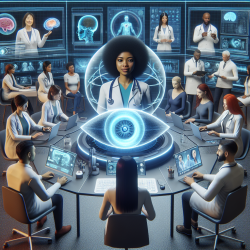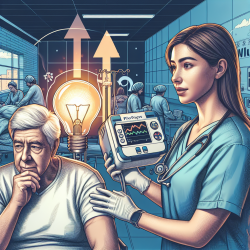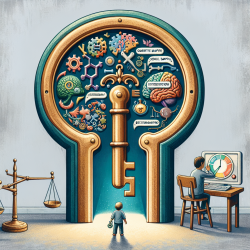Introduction
In the ever-evolving landscape of healthcare, the role of International Medical Graduates (IMGs) in the United States psychiatry workforce is both significant and transformative. The study titled "International Medical Graduates in the United States Psychiatry Workforce" sheds light on the contributions and challenges faced by IMGs in the field of psychiatry. This blog aims to explore how practitioners can enhance their skills by understanding and implementing the insights from this research.
The Role of IMGs in Psychiatry
According to the research, IMGs constitute a remarkable 29% of active psychiatrists in the U.S., a higher proportion compared to other medical specialties. This underscores their vital role in addressing the psychiatric needs of diverse populations. Many IMGs have received their medical education outside the U.S. or Canada, often in countries like India and Pakistan, and bring unique perspectives and skills to the American healthcare system.
Key Insights for Practitioners
Practitioners can leverage the findings of this study to improve their practice in several ways:
- Cultural Competence: IMGs often possess a deep understanding of cultural nuances and can provide culturally competent care. Practitioners can enhance their cultural competence by learning from their IMG colleagues and incorporating diverse perspectives into their practice.
- Workforce Distribution: The study highlights the distribution of IMGs across various states, with significant concentrations in states like Florida and New Jersey. Understanding these patterns can help practitioners identify areas with high demand for psychiatric services and plan their career paths accordingly.
- Collaboration and Networking: Engaging with IMGs can foster collaboration and networking opportunities. Practitioners can benefit from the diverse experiences and insights of IMGs, leading to improved patient outcomes and professional growth.
Encouraging Further Research
While the study provides valuable insights, it also emphasizes the need for further research to understand the long-term implications of IMG contributions to the psychiatry workforce. Practitioners are encouraged to engage in research initiatives that explore the evolving dynamics of the workforce and its impact on patient care.
Conclusion
International Medical Graduates play a crucial role in shaping the future of psychiatry in the United States. By understanding and implementing the insights from the study, practitioners can enhance their skills, improve patient care, and contribute to a more inclusive and effective healthcare system. To read the original research paper, please follow this link: International Medical Graduates in the United States Psychiatry Workforce.










